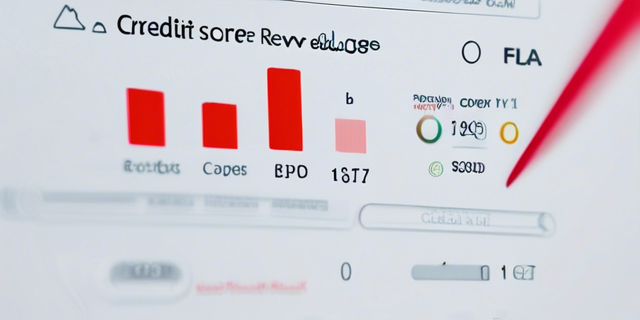Unraveling the Credit Conundrum: Understanding the Impact of Medical Debt 2024

In the complex world of personal finance, few challenges can be as daunting and overwhelming as medical debt. From unexpected illnesses to unforeseen accidents, the costs associated with healthcare can quickly spiral out of control, leaving individuals and families grappling with a financial burden that can have far-reaching consequences, including a significant impact on credit scores.
The Rising Tide of Medical Debt
According to a study by JAMA Network Open, an estimated 18% of American households carried medical debt in 2020, with the burden disproportionately affecting those with lower incomes and minority communities. This staggering statistic underscores the importance of understanding the intricate relationship between medical debt and credit scores, as well as the strategies available to navigate this challenging terrain.
How Medical Debt Affects Your Credit Score

Your credit score is a numerical representation of your creditworthiness, calculated based on various factors, including payment history, outstanding balances, and credit mix. When it comes to medical debt, the impact on your credit score can be significant and far-reaching.
Unpaid Medical Bills and Credit Reporting
In most cases, medical providers and collection agencies have the right to report unpaid medical bills to the major credit bureaus (Experian, Equifax, and TransUnion) after a certain period of delinquency, typically 180 days or more. Once reported, these unpaid debts can appear on your credit report, potentially damaging your credit score.
The Domino Effect on Credit Utilization
As medical bills accumulate, they can quickly consume a significant portion of your available credit, leading to a high credit utilization ratio. This ratio, which compares your outstanding balances to your overall credit limit, is a crucial factor in determining your credit score. A high credit utilization ratio can severely impact your credit score, making it more difficult to secure new credit or favorable interest rates.
The Lasting Impact of Collection Accounts

If your medical debt is sent to collections, the negative impact on your credit score can be even more severe. Collection accounts are viewed as significant derogatory marks by credit scoring models, and their presence can drastically lower your credit score. Furthermore, these collection accounts can remain on your credit report for up to seven years, prolonging the negative impact on your creditworthiness.
Strategies to Mitigate the Impact of Medical Debt
While the consequences of medical debt on your credit score can be daunting, there are strategies you can employ to minimize the damage and protect your financial future.
Negotiate Payment Plans with Healthcare Providers
Before your medical debt is reported to credit bureaus or sent to collections, you have an opportunity to negotiate payment plans with your healthcare providers. Many providers are willing to work with patients to establish manageable payment arrangements, often interest-free, to help them avoid the negative impact on their credit scores.
Utilize Medical Billing Advocates or Patient Advocates
Navigating the complex world of medical billing can be overwhelming, especially when faced with unexpected costs or confusing insurance coverage. In these situations, consider enlisting the help of a medical billing advocate or patient advocate. These professionals can review your bills, identify errors or overcharges, and negotiate with healthcare providers on your behalf, potentially reducing the overall financial burden.
Explore Medical Debt Consolidation Options

If your medical debt has already been reported to credit bureaus or sent to collections, you may want to explore debt consolidation options. This can involve taking out a personal loan or using a balance transfer credit card to consolidate your medical debts into a single monthly payment, potentially at a lower interest rate. However, it’s crucial to ensure that you have a realistic plan in place to repay the consolidated debt, as missed payments can further damage your credit score.
Dispute Inaccurate Medical Debt Entries
In some cases, medical debt entries on your credit report may be inaccurate or outdated. By carefully reviewing your credit reports from all three major bureaus, you can identify and dispute any errors or discrepancies. This process, known as credit repair, can help remove inaccurate or unverifiable information, potentially improving your credit score.
Consider Credit Counseling or Debt Management Plans
If your medical debt is overwhelming and you’re struggling to manage it on your own, seeking the guidance of a reputable credit counseling agency or enrolling in a debt management plan can provide valuable support. These organizations can negotiate with your creditors, including healthcare providers and collection agencies, to reduce interest rates and establish manageable payment plans, helping you regain control over your finances and protect your credit score.
Understand the Credit Reporting Practices

It’s important to note that the credit reporting practices for medical debt have been evolving in recent years. In an effort to minimize the impact of medical debt on credit scores, the three major credit bureaus have implemented policies that require healthcare providers and collection agencies to wait a minimum of 180 days before reporting unpaid medical bills. This grace period aims to provide consumers with more time to resolve billing issues or establish payment plans before their credit scores are affected.
The Path to Financial Recovery
While the impact of medical debt on your credit score can be significant, it’s essential to remember that this challenge is not insurmountable. By taking proactive steps, seeking professional guidance, and developing a comprehensive debt management strategy, you can mitigate the damage and pave the way for financial recovery.
Prioritize Debt Repayment
Once you’ve addressed your immediate medical debt concerns, it’s crucial to prioritize the repayment of any remaining outstanding balances. Consistently making on-time payments, even if they are minimum payments, can help rebuild your credit score over time and demonstrate your commitment to financial responsibility.
Monitor Your Credit Reports Regularly
Regularly monitoring your credit reports from all three major bureaus can help you stay informed about any changes or updates related to your medical debt. This practice can also alert you to potential errors or inaccuracies that may require disputing, further protecting your creditworthiness.
Rebuild Your Credit Profile
As you work towards resolving your medical debt, it’s also important to focus on rebuilding your overall credit profile. This can involve strategies such as becoming an authorized user on another person’s credit card, opening a secured credit card, or maintaining a mix of different types of credit accounts. By diversifying your credit history and demonstrating responsible credit management, you can gradually improve your credit score and regain access to more favorable lending opportunities.
Conclusion
The impact of medical debt on credit scores is a complex and often overwhelming challenge, but with the right strategies and a commitment to financial responsibility, it is a battle that can be won. By understanding the nuances of credit reporting practices, exploring debt consolidation options, and seeking professional guidance when needed, you can mitigate the damage and pave the way towards a brighter financial future.
Remember, your credit score is not a static number; it is a dynamic reflection of your financial habits and decisions. By taking proactive steps to address your medical debt and rebuild your credit profile, you can regain control over your financial well-being and unlock new opportunities for personal and professional growth.
FAQs
1. How long does medical debt stay on my credit report?
Medical debt can remain on your credit report for up to seven years from the date it was first reported as delinquent or sent to collections. However, under recent changes, medical debt that has been paid off or included in a payment plan should be removed from your credit report.
2. Can I negotiate with collection agencies to remove medical debt from my credit report?
In some cases, it may be possible to negotiate with collection agencies to remove medical debt from your credit report after it has been paid or settled. This process, known as “pay for deletion,” involves requesting the removal of the negative entry as part of the settlement agreement. However, creditors and collection agencies are not obligated to comply with these requests.
3. How much can medical debt impact my credit score?
The impact of medical debt on your credit score can vary depending on several factors, including the amount of debt, the length of delinquency, and your overall credit history. Generally, larger amounts of medical debt and longer delinquency periods can have a more significant negative impact on your credit score.
4. Can I dispute medical debt on my credit report if I believe it was incorrectly reported?
Yes, you have the right to dispute any inaccurate or unverifiable information on your credit report, including medical debt entries. If you believe that a medical debt was reported incorrectly or is not yours, you can file a dispute with the credit bureaus, providing supporting documentation to substantiate your claim.
5. Should I pay off medical debt before other types of debt?
There is no one-size-fits-all answer to this question, as the priority of debt repayment depends on your individual financial situation and goals. Generally, it’s recommended to prioritize debts with the highest interest rates or those that pose the most significant risk to your credit score, such as delinquent accounts or collections. However, if medical debt is threatening legal action or wage garnishment, it may be wise to address it promptly.









